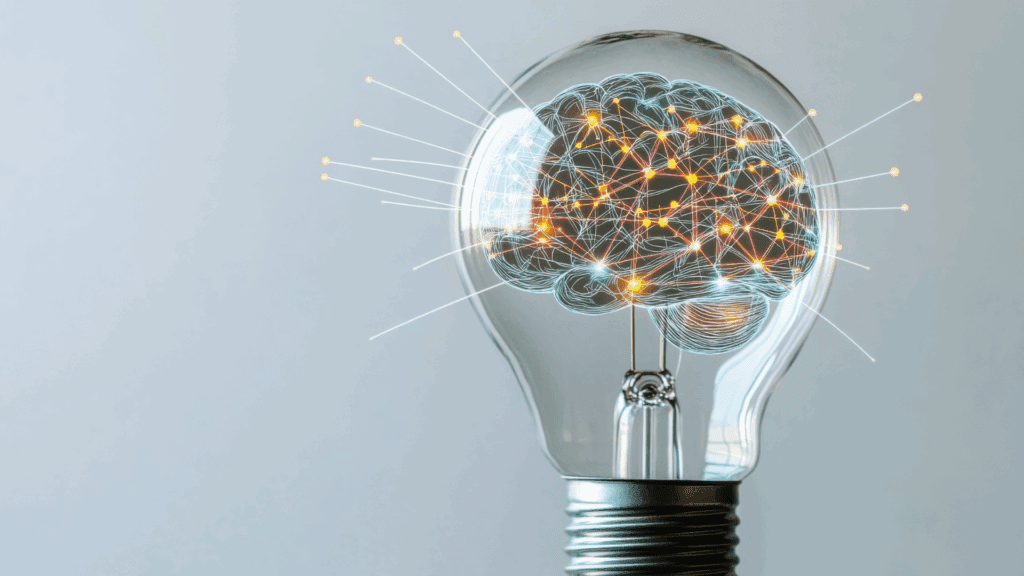Brain-based learning isn’t a fad or a corporate buzzword—it represents a revolution in professional development by harnessing the latest neuroscience, evolutionary biology, and psychology to reshape how we lead, adapt, and succeed. Understanding how the brain learns, builds habits, copes with stress, and drives authentic transformation can accelerate not only individual success but also foster better leadership and a more positive workplace culture.
The Science of Neuroplasticity and Professional Adaptability
At the core of brain-based learning is the groundbreaking principle of neuroplasticity—the brain’s remarkable and lifelong power to change. Neuroplasticity means that the physical structure and function of the brain are not set in stone; instead, every experience, challenge, and triumph rewires neural pathways. Whether someone is learning a new skill, tackling a complex project, or building new habits, the brain actually adapts, forming new connections and strengthening others. This process enables professionals at any stage in their careers to continually grow, adapt, and reinvent themselves.
For many, adaptability is often misunderstood as simply reacting to change. However, brain-based learning demonstrates that adaptability is a skill, rooted in neuroplasticity, that can be trained and developed. When people intentionally step outside their comfort zones, take on novel tasks, or reflect on feedback, their brains respond by laying down new pathways for creativity, resourcefulness, and resilience. The more these strategies are repeated, the more deeply they become embedded—turning what once felt complex or unfamiliar into new strengths and automatic responses.
The impact of neuroplasticity becomes especially clear in high-performance professional settings. Consider a manager who once struggled with public speaking—through repeated practice, visualization, and seeking constructive feedback, the critical circuits governing anxiety and social engagement are reshaped. What began as dread and avoidance transforms, over the course of weeks and months, into confidence and even enjoyment. The exact process underlies growth in leadership, innovation, and complex problem-solving.
Even research with London taxi drivers, who must memorize intricate maps, and professionals mastering new languages, demonstrates profound physical changes in the brain’s memory and processing centers. Brain-based learning emphasizes that expertise is developed through deliberate, targeted practice. There is no ceiling to what an individual can achieve if they continually challenge and support their brain’s capacity for change.
Fundamental transformation, however, takes more than mere repetition. Brain-based learning emphasizes multisensory experiences—using stories, diagrams, hands-on activities, and emotional engagement—to fully activate the machinery. Professionals who engage with new challenges using all their senses learn faster and retain more because they enlist multiple regions of the brain at once. Leaders who adopt brain-based environments where curiosity, exploration, and playful learning become regular, accelerating growth at every level.
Adaptive Thinking: Reinventing Work in the Face of Change
Rapid shifts, complex demands, and an evolving array of roles define the modern workplace. Brain-based learning trains professionals to embrace adaptive thinking—not as a vague mindset, but as a deeply ingrained neural skill. Exposing the brain to new challenges, soliciting feedback, and working across diverse disciplines creates new neural links that support innovative solutions.
Teams that create space for experimentation, constructive failure, and cognitive diversity naturally become breeding grounds for adaptive thinking. When employees journal new insights daily, seek out mentors, or regularly rotate roles, the brain’s architecture grows to anticipate and manage uncertainty. In this way, brain-based learning is a blueprint for thriving at all levels of leadership.
Cognitive Energy Management for Peak Performance

A crucial, often neglected facet of brain-based learning is cognitive energy management. Unlike time, mental energy—the brain’s fuel for focus, decision-making, and creative problem solving—is finite and requires intentional replenishment. The prefrontal cortex, responsible for executive functions like decision-making, creativity, and emotional regulation, fatigues rapidly when overloaded. Professionals who learn to manage their cognitive load, prioritize tasks for peak alertness periods, and build in downtime maximize their productivity innovation without burning out.
Workplace strategies that honor the brain’s natural cycles, mindful breaks, and “deep work” time blocks—tap into periods of optimal neurochemical readiness. This not only conserves energy but heightens performance, prevents cognitive overload, and encourages sustainable professional growth.
Creative Problem-Solving: Making Innovation Routine
Creativity flourishes when the brain is routinely exposed to diverse inputs and allowed to form unexpected connections. With brain-based learning, creative problem-solving becomes a repeatable, structured process. Professionals can leverage techniques such as mind-mapping, reframing challenges, or “what if?” brainstorming sessions to engage both hemispheres of the brain, thereby energizing neural networks and facilitating insight.
Crucially, organizations that celebrate curiosity, encourage interdisciplinary collaboration, and tolerate constructive failure sustain higher levels of motivation and creativity. Brain-based reinforcement, such as verbal praise, recognition, or small rewards, triggers reward circuits, embedding creative risk-taking as a core habit.
Practical Strategies: Applying Neuroplasticity at Work
Neuroplasticity empowers individuals and teams to transform not just what they know but how they think, feel, and act. Start by setting micro-goals—small, achievable behaviors that can be repeated until automatic. For instance, a leader seeking to foster greater openness can set a daily goal to ask two open-ended questions in meetings, thereby reinforcing new communicative habits.
Multi-sensory learning, such as pairing new information with visual aids or storytelling, deepens neural encoding and recall. Regular feedback, reflective journaling, and social learning opportunities further embed changes in the brain, making new skills durable under pressure.
Another effective strategy is “habit stacking”—linking a new desired behavior to an existing habit. Pairing a morning routine with a mindfulness check-in or gratitude reflection, for example, makes the new action almost effortless and accelerates its integration in the neural landscape.
Building Stress Resilience: Turning Adversity into Advantage
Workplace stress is unavoidable, but the brain’s reaction to it is highly trainable. The amygdala, long known as the threat detector, collaborates with the prefrontal cortex to modulate emotional reactions and strategic decision-making under pressure. Brain-based learning empowers professionals to “train up” this circuitry by regularly practicing techniques that promote recovery and recalibration.
Methods such as focused breathing, body scans, and even structured gratitude exercises downregulate the amygdala and upregulate the prefrontal cortex, thus supporting explicit, goal-directed action during adversity. Over time, these practices physiologically alter the neural stress response, making individuals less susceptible to overwhelm and more likely to bounce back quickly.
Motivation and Emotional Intelligence: Wired for Success
Motivation originates from the brain’s reward circuitry, with the release of progress toward meaningful goals. Brain-based learning centers on strategies to continually prime this reward system, including setting clear milestones, celebrating incremental wins, and connecting tasks to a deeper personal purpose.
Emotional intelligence, fundamental to workplace relationships and team cohesion, is also a trainable developing self-awareness, empathy, and self-regulation—core EI competencies—professionals establish new neural connections between the prefrontal cortex and the limbic system. This leads to stronger interpersonal skills, better conflict management, and greater overall well-being.
Lisa’s Story: A Deep Dive Client Case Study
Lisa was a senior HR leader at a major multinational, celebrated for her hard skills but struggling quietly with chronic overwhelm, creative burnout, and rising tension among her direct reports. Her story echoes the challenges many high-achieving professionals face in today’s relentless environment.
Lisa’s initial assessment revealed that most of her day was spent in reactive mode, cycling between urgent demands and critical problem-solving. The sustained cognitive load translated into disrupted sleep, fragmented focus, and a persistent feeling of never catching up. Even weekends failed to recharge her. Over time, her confidence in her creative instincts—once a core strength—began to wane.
During our work together, the first step was building Lisa’s awareness of her neurobiological stress signals. She learned to recognize the moment her mind shifted from expansive, creative thinking (dominated by the prefrontal cortex) to the constricted, survival-oriented patterns of the amygdala-led brain. With this clarity, we introduced a blend of easily accessible, brain-based techniques tailored to her high-pressure reality.
Lisa began each morning with an intentional “reset” ritual: journaling a single gratitude and visualizing her top goal for the day. This activated her reward pathways and set a purposeful tone. Throughout the day, she practiced mindful micro-breaks—brief check-ins with her breath and posture every hour—interrupting cycles of mental fatigue and emotional reactivity.
With habit stacking, Lisa added reflective questions to her end-of-day commute: What new idea did I generate today? Whose perspective did I seek? Where did I shift from defense to growth? These simple yet powerful routines, reinforced over weeks, began to visibly alter Lisa’s mood, energy, and responsiveness at work.
The next phase targeted creativity. Lisa scheduled “thinking sprints,” uninterrupted blocks for exploring new possibilities, free from email and meetings. Using mind-mapping techniques, she revived her instinct for pushing boundaries and generating cross-team solutions. Encouraged to celebrate small creative risks—whether celebrated or not by others—Lisa unlocked a stream of fresh initiatives, winning recognition from both peers and senior leaders.
Soon her direct reports reported a shift too: Lisa had become more present in meetings and handled conflict with composure. When a divisional crisis hit, Lisa’s resilience as a leader was palpable—she was able to rally her team, keep them focused, and find opportunity amidst uncertainty.
Reflecting months later, Lisa described feeling “like I finally have ownership of my brain again.” Not only was she sleeping better and enjoying her work, but her creative confidence—and her ability to inspire that in others—was at an all-time high. Lisa’s experience exemplifies how brain-based learning moves beyond surface-level productivity to restored energy, clarity, and a profound, sustainable transformation.
Developing Social Brains: The Collective Power of Community

Brain-based learning reveals that our brains are biologically wired for connection, making community a driving force in professional development. When people work together, the brain’s social networks become more active, creating the foundation for effective communication, empathy, and trust. In a team environment shaped by brain-based learning, rituals such as open discussions, shared reflections, and group problem-solving trigger the release of chemicals like oxytocin and dopamine, which enhance mood and facilitate bonding among team members. This sense of belonging is not just emotionally rewarding—it also boosts cognitive performance, motivation, and learning retention.
Organizations benefit tremendously when they structure development programs around brain-based learning principles. Leaders play a encouraging peer coaching, frequent positive feedback, and genuine interest in individual contributions. These strategies reduce fear of judgment and foster psychological safety, which is essential for people to feel confident in sharing new ideas.
In modern organizations, particularly in hybrid or remote settings, brain-based learning practices, such as virtual collaboration rituals and regular video check-ins, help keep teams cohesive, creative, and resilient. Harnessing the social brain with brain-based learning ensures every member can reach their full potential, knowing the group supports, values, and learns together.
The Evolutionary Perspective: Why Brain-Based Learning Is Hardwired
Brain-based learning capitalizes on the fact that our brains evolved to learn through experience, observation, and shared stories. For thousands of years, humans survived and thrived by collaborating, adapting, and passing knowledge through community rituals—not textbooks. This evolutionary design means that experiential learning, emotional engagement, and social interactions are the most powerful pathways for the brain to absorb new information.
Modern workplace programs that utilize brain-based learning techniques mimic these ancient strategies by integrating movement, storytelling, and role-playing. These techniques ignite all areas of the brain—analytical, emotional, and creative—producing longer-lasting knowledge and more flexible thinking. When learning is hands-on and relevant to real-life challenges, people become more engaged and open to new solutions.
Brain-based learning restores curiosity and purpose, helping professionals sustain motivation, remember more effectively, and tackle complex problems with greater confidence. By honoring how our brains are hardwired, brain-based learning ensures every professional can adapt quickly and drive innovation in any environment.
Optimizing Brain Health for Lifelong Mastery
Brain-based learning emphasizes that brain health is the cornerstone of every professional’s long-term success. Practices such as quality sleep, balanced nutrition, exercise, and mindfulness have a direct impact on the brain’s capacity to learn, remember, and solve problems. Without proper sleep, the brain struggles to process new information and manage emotions effectively. With simple daily habits—like brief walks, hydration, and morning sunlight—anyone can enhance their neuroplasticity, fueling sharper thinking and faster learning.
Companies that leverage brain-based learning create cultures that prioritize both wellness and achievement. Flexible schedules, active breaks, and wellness resources are no longer perks—they’re strategic necessities. Leaders model and promote brain-healthy routines, enabling employees to stay focused, maintain energy, and prevent burnout. For individuals, these habits lead to increased creativity, enhanced resilience, and sustained excellence. Brain-based learning reinforces that when the brain is taken care of, personal and professional growth is limitless.
Integration for Impact: The MindLab Neuroscience Way
Authentic brain-based learning moves far beyond theory—it’s about translating science into real, positive change in the workplace. At MindLab Neuroscience, every program is built on the principles of brain-based learning, helping clients like Lisa transform their daily habits and thought patterns for lasting growth. By combining reflective exercises, social engagement, and targeted habit formation, brain-based learning unlocks leadership potential, confidence, and creative problem-solving skills that last a lifetime.
Lisa’s transformation wasn’t just an individual victory; it became a spark for her entire team. Through brain-based learning, she acquired new strategies to manage stress, rekindle her creative instincts, and inspire others. This innovative approach demonstrated that brain-based learning enables individuals to achieve greater heights, adapt more quickly, and make a greater contribution to their organizations.
By understanding and respecting how the brain truly works, brain-based learning becomes the go-to strategy for professionals and leaders committed to resilience, adaptability, and high impact. MindLab Neuroscience stands as a leader in brain-based learning, consistently guiding clients to discover and harness their full brainpower for a thriving future.













